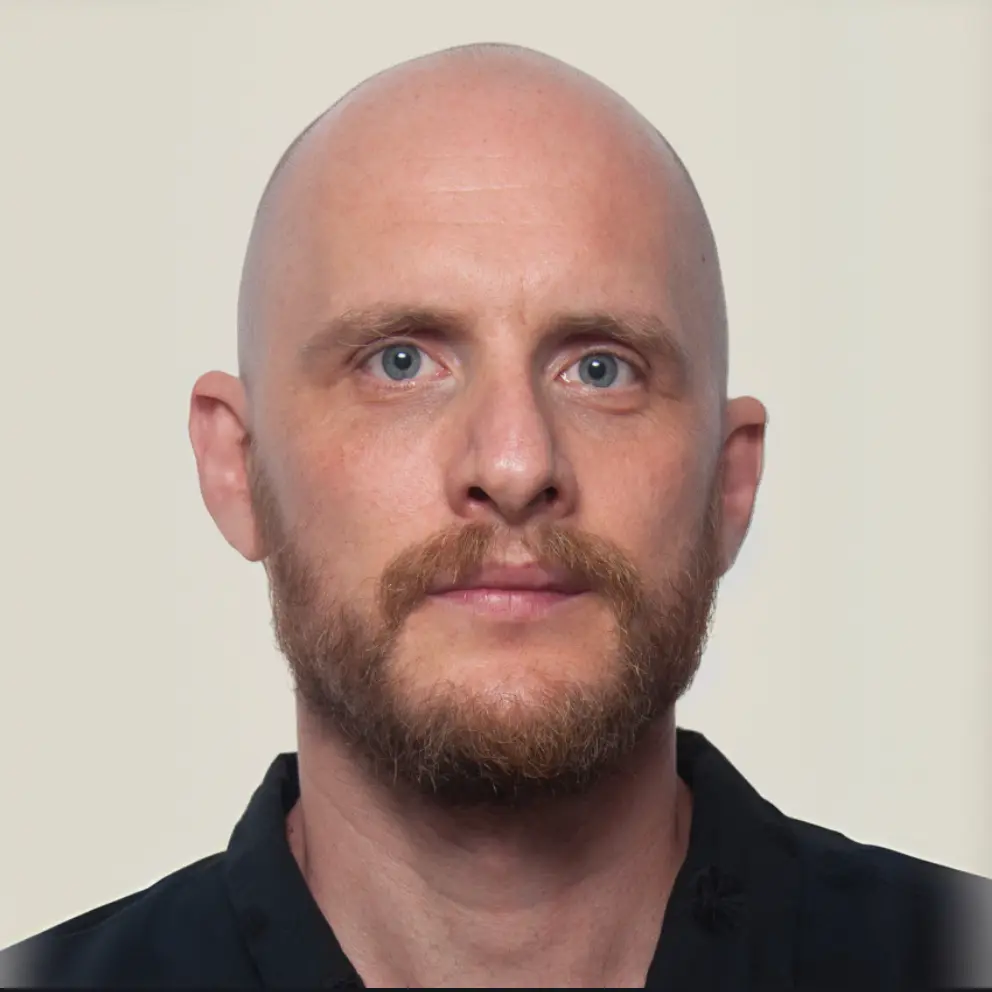Want to hire Waterfall developer? Then you should know!
- Soft skills of a Waterfall Developer
- What are top Waterfall instruments and tools?
- How and where is Waterfall used?
- TOP 14 Tech facts and history of creation and versions about Waterfall Development
- Cases when Waterfall does not work
- TOP 10 Waterfall Related Technologies
- Hard skills of a Waterfall Developer
- Pros & cons of Waterfall
Soft skills of a Waterfall Developer
Soft skills are essential for a Waterfall Developer as they contribute to effective collaboration, communication, and project management. These skills become increasingly important as one progresses from a Junior to an Expert/Team Lead level. Here are the soft skills required at each level:
Junior
- Adaptability: Ability to quickly learn and adapt to new technologies and processes.
- Teamwork: Collaborating effectively with team members and contributing to the overall success of the project.
- Problem-solving: Analyzing and finding solutions to technical challenges.
- Time management: Prioritizing tasks and meeting deadlines.
- Communication: Clearly conveying ideas and updates to team members and stakeholders.
Middle
- Leadership: Taking ownership of tasks and guiding junior team members.
- Critical thinking: Evaluating different approaches and making informed decisions.
- Conflict resolution: Resolving conflicts within the team and facilitating productive discussions.
- Mentoring: Assisting junior developers and sharing knowledge and expertise.
- Attention to detail: Ensuring accuracy and quality in deliverables.
- Stakeholder management: Effectively communicating with clients and addressing their concerns.
- Adaptability: Adapting to changing project requirements and adjusting plans accordingly.
Senior
- Strategic thinking: Aligning development efforts with long-term business goals.
- Project management: Overseeing the planning, execution, and delivery of projects.
- Decision-making: Making informed decisions based on data and experience.
- Negotiation: Negotiating contracts, timelines, and scope with clients or stakeholders.
- Team management: Leading and motivating a team of developers.
- Innovation: Identifying opportunities for improvement and innovation in development processes.
- Client relationship management: Building and maintaining strong relationships with clients.
- Risk management: Identifying and mitigating potential risks in the project.
Expert/Team Lead
- Strategic leadership: Defining and implementing the overall technical vision for the team.
- Business acumen: Understanding the business context and aligning development efforts accordingly.
- Change management: Managing and guiding the team through organizational or process changes.
- Empathy: Understanding and empathizing with the needs and challenges of team members.
- Continuous learning: Staying updated with the latest industry trends and technologies.
- Quality assurance: Ensuring the quality and reliability of the developed software.
- Resource management: Optimizing resource allocation and maximizing team productivity.
- Conflict management: Resolving conflicts within the team or with stakeholders.
- Presentation skills: Effectively presenting technical concepts to non-technical stakeholders.
- Strategic partnerships: Building strategic partnerships with other teams or organizations.
- Decision-making: Making critical decisions that impact the project’s success.
What are top Waterfall instruments and tools?
- Rational ClearCase: Rational ClearCase is a software configuration management tool used for version control of software source code and other software development assets. It was first released by Rational Software in 1992 and has since become one of the most widely used tools in the industry. ClearCase allows multiple developers to work on the same project simultaneously, providing a centralized repository for storing and managing code changes. It supports various branching and merging strategies, making it ideal for large-scale software development projects.
- Microsoft Project: Microsoft Project is a project management software tool designed to assist project managers in developing plans, assigning resources, tracking progress, and analyzing workloads. It was first introduced in 1984 and has since evolved into a comprehensive project management solution used by organizations of all sizes. With features such as Gantt charts, task tracking, and resource management, Microsoft Project enables teams to efficiently plan and execute projects, ensuring timely delivery and effective utilization of resources.
- IBM Rational DOORS: IBM Rational DOORS (Dynamic Object-Oriented Requirements System) is a requirements management tool used to capture, trace, analyze, and manage requirements throughout the software development lifecycle. It was initially developed by Telelogic in the 1990s and later acquired by IBM. DOORS provides a structured approach to requirements management, allowing organizations to define, prioritize, and track requirements from inception to delivery. With its robust traceability capabilities, DOORS helps ensure that all project requirements are met and that changes are properly managed.
- JIRA: JIRA is a widely used issue tracking and project management tool developed by Atlassian. It was first released in 2002 and has gained immense popularity among software development teams. JIRA allows teams to create, track, and prioritize tasks, defects, and user stories throughout the development process. It provides a centralized platform for collaboration, enabling teams to communicate and share information effectively. With its customizable workflows and integrations with other development tools, JIRA facilitates efficient project management and helps teams deliver high-quality software.
- HP Quality Center: HP Quality Center, now known as Micro Focus Quality Center, is a comprehensive test management tool used for planning, executing, and tracking software testing activities. It was originally developed by Mercury Interactive and later acquired by HP. Quality Center allows teams to create test cases, manage test scripts, and track defects, providing end-to-end visibility into the testing process. With its extensive reporting and analysis capabilities, Quality Center enables teams to identify and address quality issues early in the development lifecycle, ensuring the delivery of reliable software.
How and where is Waterfall used?
| Case Name | Case Description |
|---|---|
| Enterprise Software Development | The Waterfall model is often used in the development of large-scale enterprise software projects. Its linear and sequential approach allows for meticulous planning, requirement gathering, and documentation. This is particularly beneficial when dealing with complex and mission-critical systems, as it ensures a thorough understanding of project requirements and reduces the risk of errors or misunderstandings. |
| Infrastructure Development | Waterfall methodology is frequently employed in infrastructure development projects, such as building construction, road networks, or large-scale engineering projects. The sequential nature of Waterfall allows for precise planning, budgeting, and resource allocation. It ensures that each phase of the project, from design to implementation, is carefully executed before moving on to the next, minimizing the risk of costly rework or delays. |
| Regulated Industries | Industries that are heavily regulated, such as healthcare, finance, and aerospace, often rely on Waterfall development due to its emphasis on documentation and traceability. Compliance with regulatory standards and guidelines is paramount in these sectors, and the Waterfall model’s structured approach ensures that all necessary documentation, testing, and quality assurance measures are diligently followed. |
| Hardware Development | Waterfall methodology finds extensive use in the development of hardware products, such as consumer electronics, automotive components, and industrial machinery. The linear nature of Waterfall allows for detailed planning, prototyping, and manufacturing processes. It ensures that each step of the hardware development cycle, from design to production, is carefully executed, minimizing the risk of design flaws or manufacturing errors. |
| Mission-Critical Systems | Waterfall development is often employed for the development of critical systems, such as air traffic control systems, nuclear power plants, or defense systems. These systems require a high level of reliability, safety, and predictability. The Waterfall model’s rigorous planning, requirement analysis, and testing enable thorough risk assessment, ensuring that these systems meet the stringent standards and specifications they demand. |
| Legacy System Maintenance | Waterfall methodology is commonly used for maintaining and upgrading legacy software systems. Legacy systems may have complex dependencies, intricate business rules, and extensive user bases. The Waterfall model’s systematic approach allows for comprehensive understanding and documentation of the existing system before making any modifications. It ensures that changes are carefully planned, tested, and deployed, minimizing disruptions and potential risks. |
| Fixed Budget Projects | Waterfall methodology is suitable for projects with fixed budgets, where cost estimation and control are critical. The sequential nature of Waterfall allows for accurate budget planning, as each phase of the project is meticulously defined and executed. It enables stakeholders to have a clear understanding of the project’s financial implications, minimizing the risk of cost overruns or unforeseen expenses. |
TOP 14 Tech facts and history of creation and versions about Waterfall Development
- Waterfall development is a sequential software development methodology created in 1970 by Dr. Winston Royce, an American computer scientist.
- It was the first formalized software development methodology and laid the foundation for modern software development practices.
- The Waterfall model follows a linear and sequential approach, where each phase of the software development life cycle (SDLC) is completed before moving on to the next.
- Despite its widespread use in the early days of software development, the Waterfall model has faced criticisms for its lack of flexibility and adaptability.
- The Waterfall model consists of several distinct phases, including requirements gathering, system design, implementation, testing, deployment, and maintenance.
- One of the key principles behind the Waterfall model is that each phase must be completed before moving on to the next, ensuring a systematic approach to development.
- Waterfall development heavily relies on documentation, with each phase requiring detailed documentation to guide the next phase.
- The Waterfall model became popular due to its simplicity and ease of understanding, making it suitable for projects with well-defined requirements.
- Waterfall development has been criticized for its lack of flexibility in accommodating changes or updates during the development process.
- While the Waterfall model is considered a traditional approach to software development, many modern methodologies, such as Agile, have emerged to address its limitations.
- Despite its limitations, the Waterfall model is still used in certain industries and projects where a rigid and sequential approach is required.
- The Waterfall model served as the basis for the Capability Maturity Model (CMM), a framework for assessing and improving an organization’s software development processes.
- Over time, variations of the Waterfall model have emerged, such as the V-shaped model and the spiral model, which aim to address some of its limitations.
- While the Waterfall model has been largely replaced by more iterative and flexible methodologies, its historical significance in shaping the field of software development cannot be understated.
Cases when Waterfall does not work
- Complex and Uncertain Requirements: Waterfall is not suitable for projects with rapidly changing or unclear requirements. In such cases, the sequential nature of Waterfall can lead to delays and rework. Agile methodologies, which emphasize flexibility and adaptability, are better suited for these situations. According to a study by Standish Group, 71% of projects failed due to poorly defined requirements, which is a common challenge for Waterfall projects.
- High Risk and Uncertainty: Projects that involve high levels of risk and uncertainty are not well-suited for Waterfall. The rigid nature of the Waterfall model makes it difficult to accommodate unexpected changes or adapt to new information. Agile methodologies, such as Scrum or Kanban, allow for frequent iterations and feedback, enabling teams to mitigate risks and respond to uncertainties more effectively.
- Long Development Cycles: Waterfall is not ideal for projects with long development cycles. The model assumes that all requirements can be gathered and defined upfront, which may not be feasible for projects that span several months or years. As a result, stakeholders may have to wait a significant amount of time before seeing any tangible results. Iterative approaches, like Agile or Lean, provide more frequent deliverables, ensuring continuous value delivery throughout the project.
- Limited Customer Involvement: Waterfall projects often have limited customer involvement until the later stages of development, typically during the testing or implementation phase. This can lead to misalignment between the final product and customer expectations. Agile methodologies emphasize regular customer collaboration and feedback, ensuring that the end product meets customer needs and preferences from the early stages of development.
- Minimal Adaptability: Waterfall does not handle changes well once the project is in motion. If there is a need to modify requirements or make adjustments, the entire project timeline and deliverables may need to be revised. This lack of adaptability can be problematic in dynamic environments where change is inevitable. Agile methodologies, on the other hand, embrace change and provide mechanisms to incorporate modifications without disrupting the entire project.
TOP 10 Waterfall Related Technologies
Python
Python is a versatile and widely-used programming language that is highly popular in the software development industry. Its simplicity and readability make it an excellent choice for waterfall software development projects. Python’s extensive library ecosystem and strong community support make it ideal for building scalable and maintainable applications.
Java
Java is a robust and reliable programming language that has been widely adopted by software development teams for waterfall projects. It provides a platform-independent approach, allowing developers to write code once and run it anywhere. Java’s object-oriented nature, rich libraries, and vast community support make it a top choice for large-scale software development.
.NET Framework
The .NET Framework is a widely-used software development platform developed by Microsoft. It provides a comprehensive set of tools and libraries for building Windows applications. With its strong integration with Microsoft technologies, the .NET Framework is often the go-to choice for organizations working on waterfall software development projects.
HTML/CSS
HTML and CSS are fundamental technologies for web development. HTML is used for structuring the content of web pages, while CSS is used for styling and layout. As waterfall projects often involve building web-based applications, having a strong understanding of HTML and CSS is essential for front-end development.
JavaScript
JavaScript is the backbone of interactive web applications and is widely used in waterfall software development projects. It enables developers to add dynamic functionality to websites and build complex user interfaces. JavaScript frameworks like React, Angular, and Vue.js have gained significant popularity, making JavaScript an essential skill for front-end development.
SQL
Structured Query Language (SQL) is used for managing and manipulating databases. In waterfall projects, where data persistence is crucial, a strong understanding of SQL is necessary. From creating tables to querying and modifying data, SQL is a fundamental skill for backend developers working on waterfall software development projects.
Git
Git is a distributed version control system that allows developers to track changes in their codebase. It provides a collaborative environment for teams working on waterfall software development projects, enabling them to manage code versions, merge changes, and track project history effectively. Proficiency in using Git is vital for efficient and organized software development.
Hard skills of a Waterfall Developer
Hard skills of a Waterfall Developer:
Junior
- Programming languages: Proficiency in languages such as Java, C#, or Python.
- Software development life cycle: Understanding of the Waterfall methodology and its phases.
- Version control: Familiarity with tools like Git or SVN for code versioning and collaboration.
- Debugging and troubleshooting: Ability to identify and fix issues in the code.
- Testing: Knowledge of manual testing techniques to ensure software quality.
Middle
- Database management: Experience in working with relational databases like MySQL or Oracle.
- System architecture: Understanding of designing and implementing software systems.
- Requirement analysis: Ability to gather and document project requirements.
- Project management: Knowledge of project planning, estimation, and tracking.
- Code optimization: Skills to improve code efficiency and performance.
- Quality assurance: Experience in creating and executing test cases and test plans.
- Deployment: Familiarity with deploying applications to production environments.
Senior
- Enterprise frameworks: Proficiency in using frameworks like Spring or .NET.
- Security: Knowledge of secure coding practices and vulnerability assessment.
- Performance tuning: Skills to optimize software performance and scalability.
- Code review: Ability to conduct thorough code reviews and provide constructive feedback.
- DevOps: Understanding of continuous integration and deployment pipelines.
- Agile methodologies: Experience in Agile practices like Scrum or Kanban.
- Leadership: Ability to mentor and guide junior developers in the team.
- Client interaction: Experience in communicating with clients and understanding their needs.
Expert/Team Lead
- Architectural design: Proficiency in designing complex software architectures.
- Technical leadership: Ability to lead a team of developers and provide technical guidance.
- Performance optimization: Skills to optimize system performance at scale.
- Code refactoring: Experience in refactoring legacy codebases for better maintainability.
- Cloud platforms: Knowledge of cloud platforms like AWS or Azure for scalable solutions.
- Database optimization: Expertise in optimizing database performance and query optimization.
- Agile project management: Experience in managing Agile projects and teams.
- Code quality: Ability to enforce coding standards and best practices.
- Continuous improvement: Skills to identify areas of improvement and implement process enhancements.
- Technical documentation: Proficiency in creating detailed technical documentation.
- Risk management: Ability to identify and mitigate project risks.
Pros & cons of Waterfall
7 Pros of Waterfall
- Clear and well-defined project requirements: Waterfall methodology requires thorough planning and documentation upfront, ensuring that project requirements are clearly defined from the start.
- Easy to understand and manage: The linear and sequential nature of the Waterfall approach makes it easy to understand and manage, as each phase has specific deliverables and milestones.
- Predictable and stable: Waterfall follows a structured and predictable process, which makes it easier to estimate project timelines, costs, and resource requirements.
- Early detection of issues: The Waterfall model emphasizes documentation and review processes, which helps in early detection of issues and risks, allowing for timely mitigation.
- Clear project milestones: Waterfall divides the project into distinct phases, with clear milestones, making it easier to track progress and measure success.
- Well-suited for small projects with stable requirements: Waterfall is particularly effective for small projects with well-understood and stable requirements, where changes are less likely to occur during the project.
- Well-documented process: Waterfall methodology requires extensive documentation at each phase, ensuring a comprehensive record of the project’s progress, decisions, and outcomes.
7 Cons of Waterfall
- Less flexibility for changes: The linear nature of Waterfall makes it challenging to accommodate changes or adapt to evolving requirements once the project has progressed beyond the initial phase.
- High risk of delivering an outdated product: Due to the lengthy planning and development phases, there is a risk that the final product delivered may not align with the latest market trends or customer needs.
- Long development cycles: Waterfall projects often have longer development cycles, which can delay the delivery of the final product or solution.
- Limited stakeholder involvement: The sequential nature of Waterfall may limit stakeholder involvement and feedback until later stages of the project, potentially leading to misunderstandings or misalignment.
- Difficulty in managing complex projects: Waterfall may not be suitable for complex projects with multiple dependencies and interrelated tasks, as it lacks the flexibility to adapt to changing circumstances.
- Testing at the end of the development cycle: Waterfall typically follows a “test at the end” approach, which means testing and quality assurance activities are performed towards the later stages of the project, increasing the risk of identifying issues late in the process.
- Minimal customer interaction: Waterfall’s focus on documentation and sequential phases may result in limited customer interaction throughout the development process, potentially leading to a product that does not fully meet customer expectations.
- Soft skills of a Waterfall Developer
- What are top Waterfall instruments and tools?
- How and where is Waterfall used?
- TOP 14 Tech facts and history of creation and versions about Waterfall Development
- Cases when Waterfall does not work
- TOP 10 Waterfall Related Technologies
- Hard skills of a Waterfall Developer
- Pros & cons of Waterfall



